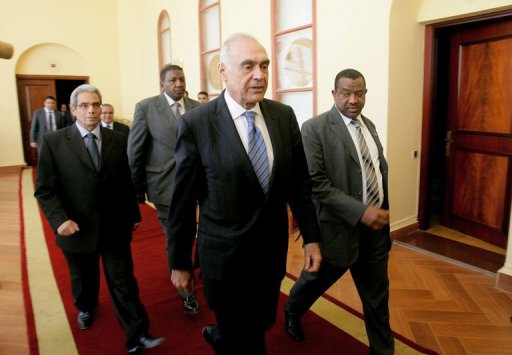BEIRUT: Pilot error and inexperience were behind the 2010 crash of an Ethiopian airliner in Lebanon in which all 90 people on board died, according to a report released on Tuesday by Lebanese authorities.
"What is clear is that there were errors on the part of the pilot and co-pilot who are entirely responsible for the plane crash," Transport Minister Ghazi Aridi told AFP, referring to the January 25, 2010 incident.
Ethiopian Airlines immediately rejected the Lebanese findings saying the crash was likely caused by sabotage or a lightning strike.
According to the 191-page report, the pilot had been overworked and was probably exhausted when the Ethiopian Airlines Boeing 737-800 crashed into the Mediterranean minutes after taking off from Beirut, killing 82 passengers and eight crew.
It was the captain’s first flight into Beirut and he was not very experienced with the aircraft, having flown it for a total of 188 hours in 51 days, the report added.
It said the captain’s relative inexperience with the jet along with the fact that he was not familiar with Beirut airport or the co-pilot contributed to the crash.
The crew had also complained of having eaten a heavy meal which may have affected their sleep prior to the flight.
"The investigation revealed that the probable causes of the accident were the flight crew’s mismanagement of the aircraft’s speed, altitude, headings and attitude through inconsistent flight control inputs resulting in a loss of control," the report added.
It said air traffic control kept advising the pilot to steer the plane away from a fierce storm that night but he failed to follow instructions.
Aridi said the plane was sound and a transcript of the exchange that took place between the crew and the tower control on takeoff showed there was no problem with the aircraft or instruments on board.
He said the Lebanese report on the crash was in line with findings by French and American investigators.
But the airline’s management rejected the Lebanese report.
"The aircraft disintegrated in the air due to explosion, which could have been caused by a shoot-down, sabotage or lightning strike," Desta Zeru, vice president of flight operations for Ethiopian Airlines, said in a statement.
The airline’s own accident report also released Tuesday said witnesses saw an explosion in the sky before the jet crashed into the sea and there was indication of "external damage" inflicted, Desta told reporters.
The airline had already rejected an earlier preliminary report showing pilot error, and maintained the crew was alert.
"It’s biased, it’s missing facts, (it includes) hypotheses and conveniently excludes hard facts. We totally reject it," Desta said.
Desta accused Lebanese authorities of omitting the majority of the wreckage from the investigation and said Lebanon "ignored crucial information," such as security footage and autopsy records.
Lebanese investigators however have ruled out sabotage.
Their report said that there were "no signs of fire or explosion detected in the aircraft wreckage" or that the plane encountered any severe turbulence or lightning strike.


